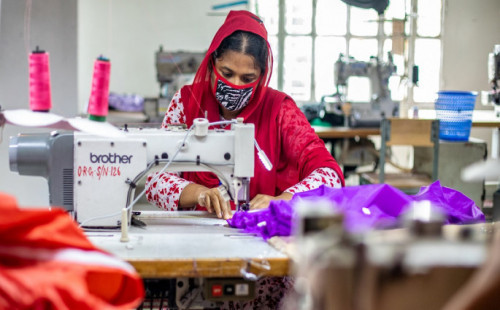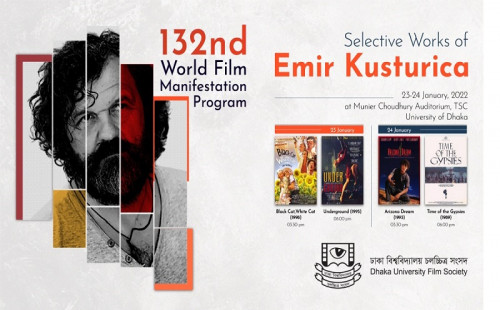Garments manufacturers feel the pinch as container lines suspend freight to Russia

Ongoing Russia-Ukraine war made the shipments uncertain as
many of the international container lines, also known as mainline operators,
officially suspended shipping to Russia. Besides, others are also showing
reluctance in taking of Russia-bound container bookings.
Dozens of Bangladesh apparel manufacturers have started to
feel the pinch. They fear that they might face order cancellations or see
difficulties in receiving payments. Sonnet Textile is one of them.
Usually, mainline operators carry the goods to Russia as
well as Europe directly from Chattogram. Sometimes, the goods being released at
different European ports are shipped to Russia by road.
"Our buyer is in talks with us. They informed us that
they will arrange shipping of the T-shirts by alternative means," added
the Sonnet Textiles director.
According to the Bangladesh Inland Container Depots
Association, at least 166 containers which were supposed to be shipped to
Russia, remain stuck in different privately-run depots after the suspension.
There are huge loads of such goods at various depots waiting to be loaded on to
containers.
On 1 March, the world's three biggest container lines –
Swiss-headquartered Mediterranean Shipping, Denmark-based Maersk, France's CMA
CGM – temporarily suspended cargo shipments to and from Russia in response to
Western sanctions on Moscow following its invasion of Ukraine.
Following that Japan-based One Line, German-based
Hapag-Lloyd, and a few others, suspended shipping to Russia. Although other
shipping lines have not declared it openly, they are showing reluctance in
carrying Russia-bound goods.
11 mainline operators, including the above-mentioned, carry export containers
from Chattogram to Russia as well as Europe.
"We have not been taking bookings of Ukraine-bound
containers since 24 February and Russia-bound containers from 1 March,"
said Azmir Hossain, Mediterranean Shipping head of operations for Bangladesh.
Other shipping companies have also suspended their booking services, he added.
"We could send 150 TEU containers of goods to Russia at
this time," he told, but also said that the bookings would not be started
if the war continued.
Bangladesh sends nearly 2% of its export items to Russia,
mostly apparel goods, and 55% to other European countries, according to the
Bangladesh Garment Manufacturers and Exporters Association (BGMEA). In
fiscal year 2021, the country's total apparel exports stood at $31.45 billion,
while goods worth $687 million went to Russia.
"The continuation of the war would have a negative
impact on new orders and the supply chain," BGMEA Vice-President Rakibul
Alam Chowdhury said.
Other BGMEA leaders also feared the post-war period would
have uncertainty over LCs, payments, and more. Everything would depend on
post-war relations between the affected countries, they said.
Garment manufacturers are also worried as several of their
largest buyers, including multinational clothing brands H&M and Inditex,
have temporarily closed their operations in Russia. Besides, the suspension of
several banks from the global telecommunication network of financial
transactions, Swift, is also feared to hit Bangladesh exporters.
"The ongoing Russia-Ukraine war put global trade, including
the readymade garment business, in a severe crisis. We fear we will get
payments late from our Russian buyers due to the Swift-restrictions," said
MDM Mohiuddin Chowdhury, another director of BGMEA and chief executive officer
of the Clifton Group.
"There is no certainty when we will get relief from the
crisis," he added.
Bangladesh Shipping Agents Association Director, Shahed
Sarwar, fears large shipping companies could impose surcharges on
shipping fares if the Russia-Ukraine war continues.
Referring to such previous international wars, he said the
global supply chain might see a major disruption in the future.
.png)













